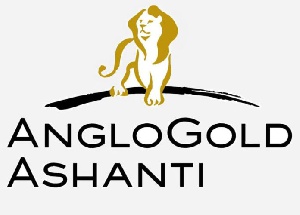 AngloGold Ashanti is one of Ghana's leading gold mining firms
AngloGold Ashanti is one of Ghana's leading gold mining firms
AngloGold Ashanti delivered a solid third-quarter operating result, with steady production and a significant drop in costs helping to drive net debt down by 15% year-on-year.
Production for the full year remains forecast for the top end of the guidance range, while costs are expected at the lower end.
Production from retained operations, after stripping out the South Africa asset sales, was 851,000oz at a total cash cost of $722/oz for the quarter ended 30 September 2018, compared with 853,000oz at $743/oz in the corresponding period of last year. Mponeng, Kibali, Iduapriem and Tropicana delivered standout performances. In South Africa the restructuring process to better match support infrastructure with the smaller production base, is largely complete.
All-in Sustaining Costs (AISC) were $920/oz during the third quarter of 2018, an improvement of $151/oz or 14% compared to the third quarter of last year and a $94/oz improvement from the second quarter of this year. This performance reflects both lower capital expenditure and improved cash costs, supported by Operational Excellence interventions and weaker operating currencies in key jurisdictions, notably Brazil, Argentina, Australia and South Africa.
“This is a strong operating result that shows our absolute focus on safety and margins,” Chief Executive Officer, Kelvin Dushnisky said. “While we continue to work on improving efficiencies right across our asset suite, we’re also making steady progress on our projects, which are aimed at improving the overall quality and life of our portfolio.”
AngloGold Ashanti has invested in a slate of brownfields projects, aimed at extending life and improving margins at key assets. At the Obuasi Redevelopment Project in Ghana, early work in establishing the site has progressed, major contracts have been awarded and mobile equipment deliveries have commenced. First production from the development of the large, high-grade ore body remains on track for the end of next year.
Safety
The Company’s All-Injury Frequency Rate, the broadest measure of workplace safety, for the first nine months of the year was 5.16 injuries per million hours worked, from 7.79 in the same period last year, an improvement of 34%.
In the three months through September, the AIFR was 4.17, compared to 7.08 in the third quarter of last year. This is the lowest level in the company’s history. There were no fatalities during the third quarter ended 30 September 2018. The Company remains vigilant and focused on its safe production strategy and on intensifying safety practices for a sustainable improvement in this important area.
Cash Flow and Balance Sheet
Free cash inflow was $34m for the third quarter of 2018, compared with $88m in the corresponding period last year. Free cash flow for the quarter was affected by the 5% lower gold price received, lower sales volumes year-on-year, and adverse working capital changes. These negative factors were partly offset by lower capital expenditure and costs.
The balance sheet remains robust, with strong liquidity. Adjusted earnings before interest, tax, depreciation and amortisation (Adjusted EBITDA) declined to $355m for the third quarter of 2018, from $399m in the third quarter last year, due mainly to the lower gold price and fewer ounces sold.
Net debt declined by 15% to $1.749bn at 30 September 2018, from $2.063bn at the same time last year. The ratio of net debt to Adjusted EBITDA at 30 September 2018 was 1.13 times compared with 1.49 times as at 30 September 2017. The current net debt to Adjusted EBITDA ratio falls well below the covenant ratio of 3.5 times which applies under the company’s revolving credit facility agreements (RCFs), highlighting the success of AngloGold Ashanti’s continued efforts to maintain financial flexibility.